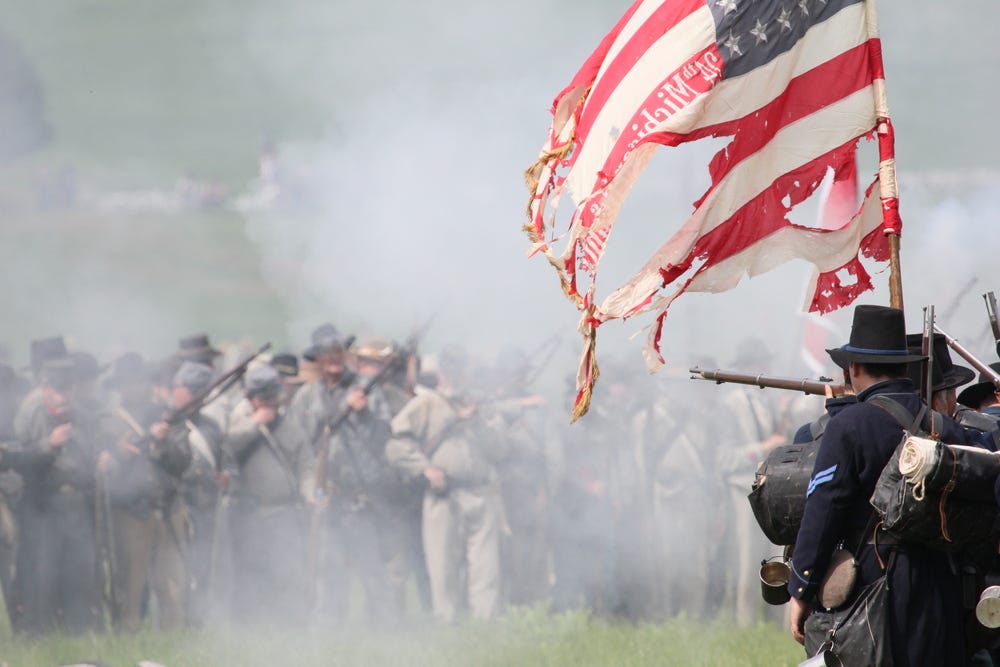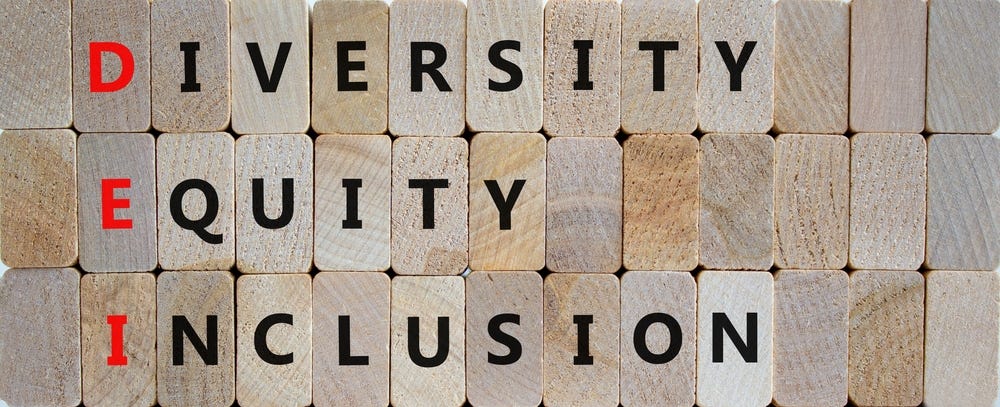E-Pluribus | November 3, 2021
Has hyperbole about wokeness gone too far, is Civil War II coming, and some feedback from "the gulag."
A round up of the latest and best writing and musings on the rise of illiberalism in the public discourse:
Nicholas Grossman: No, America is Not Experiencing a Version of China's Cultural Revolution
At Arc Digital, Nicholas Grossman takes issue with a recent Commentary piece by Bari Weiss that draws parallels between America’s current “woke” trend in higher education to Mao’s China. While acknowledging the place of hyperbole in historical allusions, Grossman says the Mao connection is simply counterfactual.
I think free speech is an essential value, not just at the legal level, but culturally as well. I think people who would scrap it, from crusading antiracists to social conservatives pining for Viktor Orban’s Hungary, have a naively utopian sense of how that would go (both in general and for them specifically). Getting the state involved in speech suppression is a bad idea.
I think free association is an essential value too. Which inherently includes the right of disassociation.
I think these situations often fall into a gray area, and businesses should be able to make their own judgment calls about personnel, since companies have a reasonable interest in protecting their brand. That especially applies to public-facing businesses with employees who do PR, such as with Disney firing Mandalorian actress Gina Carano.
I think violence is physical, and that while speech can be quite harmful, it’s better to think of these two things as categorically different than to insist harmful speech is literally violence.
I think America’s founding was a big step forward for government and individual liberty, and early America was a deeply racist, bigoted place that needed Amendments (13-15; 19), Civil Rights Acts, and landmark court cases to become a liberal democracy. I don’t think it’s hard to hold both of those in your head at the same time.
I think students learning the unvarnished truth about America’s racist past is good, and that teaching students they are personally responsible for the sins of the past is not.
I think synthesis of these cultural forces is both desirable and possible. Way more people think both that bigotry is bad and individual freedom is good than online arguments lead you to believe.
Read it all.
Lee Siegel: It’s Not Existential
With a thesis similar to Nicholas Grossman’s above, Lee Siegel at City Journal takes on the idea that America is on the verge of a literal civil conflict or war. As with Grossman, Siegel does not deny that divisions exist today, he dismisses the idea that any polarization comes close to the deep differences between the North and South that simmered for decades and finally exploded into the Civil War.
Add up one progressive-sponsored assault after another on everyday life and it really does seem as if Americans are trapped between the Scylla of a revolutionary vanguard and the Charybdis of reactionary revolution. The sudden implosion of stable sexual identity; the replacement of “pregnant woman” with “pregnant person”; the shaming of any person, no matter how decent or well-intentioned, who blanches when faced with the elimination of gas stoves and gas-propelled cars; the anathematization of work: a web of illusions about an election on one hand, a web of delusions about human nature on the other.
But is an epistemological crisis the same as finding ourselves on the brink of civil war? We might see through the more hyperbolic claims of division to find our way to some obvious and consequential bonds. The often-heard claim, for instance, that Americans essentially live in different countries is a disconnection from American reality—a product of, to borrow a term from intellectual historian Arthur Lovejoy, a “climate of opinion” that sees portents of civil war everywhere. Someone in Vermont is just as likely to be listening, say, to country and western music as someone in Texas; you would quickly lose count of all the Honda CRVs bearing Black Lives Matter decals, on the one hand, and those with MAGA stickers, on the other. If the country ever comes together as one, the point of unity will probably be a large cheese pizza.
All Americans share in certain existential features of American life. And that is the point: an epistemological crisis is not the same thing as an existential one. Arguments around the Thanksgiving table are not existential emergencies; neither are intellectual disputes between spouses, lovers, colleagues, and friends. If we all had the same perspective on reality, we would all suddenly fall silent. But we talk, all the time, and our talk consists of a case being made for one version of reality over another.
Read the whole thing.
Lawrence M. Krauss: Tales From the Gulag
Writing at Quillette, Lawrence Krauss shares some feedback on his recent Wall Street Journal essay that discussed the impact of “Diversity, Equity, and Inclusion” (DEI) on the scientific and educational communities. Krauss finds some comfort in the willingness of others to share similar experiences, and says only by continuing to do so will it be possible to reverse the concerning stifling of ideas and speech that run counter to current DEI orthodoxy.
Numerous correspondents wrote to me concerned about their specific areas of scholarship. Particularly worrying were emails from those in the medical and legal professions.
Here’s one from a professor at a very prominent US medical school:
Dear Dr Krauss,
Your op-ed in WSJ barely touched the problem of DEI in American biomedical science and clinical practice. The societies (e.g., Amer Society of Cell Biology) and the journals (esp Elsevier) are rife with DEImania. This is affecting clinical medicine. It is the death spiral of American medicine, with unintended consequences for the very groups it is supposed to help.
What can one do?While this is concerned in more general terms with possible impacts on the field, a very poignant email from another professor in a biomedical field illustrates the personal impact that this environment of fear and suppression is taking on the psyche of scientific researchers:
I feel like the turtle in the picture with the neck out and about to get chopped ... It is strange to me that this is happening because I am a Hispanic woman with Spanish, North African, Chinese, and Native American ancestry that speaks four languages and has lived everywhere in the world, so I should be the pinnacle of what DEI is aspiring for. Nevertheless, I am experiencing the tyranny of DEI because it is not about diversity of race or sex but more about a loyalty test. This will not last forever, but the question is how much damage this will do ... This year has been an authoritarian year full of tyrannical mandates and intolerance. I have never experienced having moral (mandatory DEI trainings that forces me to affirm things that go against my conscience), medical, or religious tests in order to work before this year. Innovation and intellectual greatness come as a result of freedom. Suppression of speech and ideas will result in a reduction of greatness and innovation. Freedom of speech can only be real freedom if speech that we do not agree with is allowed. Let's include diversity of thought and ideology in what you want to protect.
Read it all here.
Around Twitter
Matt Yglesias and Nicholas Christakis on an apology for a scientific paper that apparently “hurt” people:
Excerpts from a thread by Helen Pluckrose detailing the abuse to which she is subject and what her response is and isn’t:
Finally, another installment of Woke in Plain English from Peter Boghossian:









